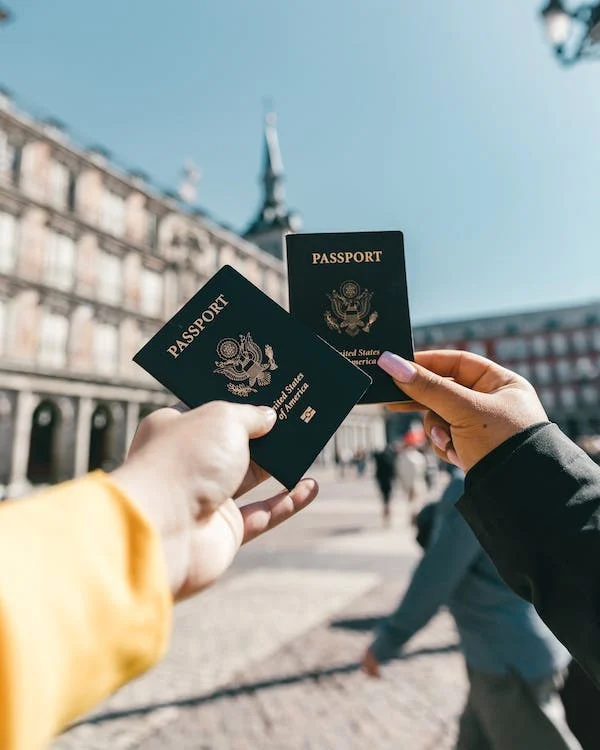H-1B Visa Attorney Fees and Process: What to Expect
Understand H-1B visa attorney fees, the filing process, employer obligations, and key requirements. Learn how an H-1B visa attorney can assist in securing approval. 9 min read updated on April 09, 2025
Key Takeaways:
- H-1B visa attorney fees vary depending on services, with costs ranging from $500 to $2,500+.
- Employers must pay all filing and legal fees except the premium processing fee, which employees may cover.
- Additional employer responsibilities include filing labor condition applications, proving fair wages, and submitting extensive documentation.
- The H-1B visa process consists of multiple steps, including form submissions and legal verifications, typically taking between one to six months.
- The H-1B cap is limited to 65,000 visas annually, plus an additional 20,000 for applicants with advanced degrees.
- Exemptions exist for certain applicants, such as those under the H-1B1 and E-3 programs.
- Applicants should prepare for an H-1B interview, which includes questions about their job role, qualifications, and intent to stay in the U.S.
- Denials can occur due to employer ineligibility, missing documentation, or failure to meet the specialty occupation requirement.
- Hiring an H-1B visa attorney can improve approval chances by ensuring correct documentation and legal compliance
Attorney Fees for H-1B Visa
What’s included with the total H1B visa attorney fee you pay is dependent on your immigration lawyer and what you need assistance with, such as:
- Registration
- Filing all forms and support letters
- A Request for Evidence response
The typical fees you can expect to pay are below. All fees (except the premium processing fee) are paid by the employer.
| Attorney Fees for H-1B Visa | Amount ($) |
|---|---|
| Registration Fee | $10 |
| Premium Processing Fee | $2,500 |
| Public Law 114-113 Fee | $4,000 |
| Basic Filing Fee | $460 |
| USCIS Anti-Fraud Fee | $500 |
| ACWIA Education and Training Fee | $750 to $1,500 |
| Attorney Fee | $500 to $2,500+ |
Here’s more information about what you can expect to pay.

New H-1B Visa
An average H1B visa lawyer fee is $2,500. This fee may change depending on your specific legal needs. On UpCounsel you can save up to 60% compared to traditional law firms Post a job now and get free proposals in 24h.
H-1B Visa Renewal or Extension
A typical H1B immigration lawyer fee to renew or extend your H-1B application is $460. This covers the cost to file I-129. The H1B extension processing time is 15 days.
H-1B Visa Transfer
A H-1B visa transfer fee is between $1,710 to $6,460. This H1B transfer fee depends on whether your employer is required to pay the ACWIA Education and Training Fee, which is $750 for less than 25 employees and $1,500 for more than 25 employees.
Second Concurrent H-1B Visa
There’s an option for employees to work for two separate employers if the second employer files a petition for a concurrent H1B visa.
The same requirements and fees apply to a second petition. It remains your employer's duty to demonstrate that you meet the knowledge and educational requirements of that position.

Additional Costs and Considerations
Beyond the standard H-1B visa attorney fees, there are other potential costs that applicants and employers should consider:
- Dependent Fees: If an H-1B visa holder plans to bring dependents, the employer or the applicant may need to file Form I-539 for an H-4 visa, which has a separate filing fee.
- Employer Compliance Costs: Employers may need to cover costs related to public access files, compliance with U.S. Department of Labor (DOL) regulations, and any necessary site visits by USCIS.
- RFE Response Costs: If USCIS issues a Request for Evidence (RFE), attorneys may charge additional fees for handling the response.
- Consular Processing Fees: If applying outside the U.S., consular processing fees may be required, such as a $205 visa application fee.
- Potential Litigation Costs: If an employer fails to meet obligations, it may face legal challenges that could add further legal expenses.
Step By Step H-1B Visa Process
To be eligible for the H-1B Visa, an employer must be willing to sponsor foreign nationals, providing a job offer that requires specialized skills. The H-1B is completed and paid for by the employer. The two most important components of this work visa are:
- H-1B Sponsorship by a US Employer
- H-1B petition to the United States Citizenship and Immigration Services (USCIS)
Here are the steps you need to complete for the H-1B visa process.
Step 1: Form G-28
The employer’s H1B lawyer must file Form G-28. This form allows a work visa attorney to represent a client in an immigration case before the United States Department of Homeland Security.
It’s important that all sections of this form are completed, including the printed name of the attorney and the employer’s signature.
Step 2: Form ETA-9035 (Labor Condition Application)
The employer will need to next submit Form ETA-9035 (Labour Condition Application) through the Department of State’s iCert Portal System.
This form concedes that the employer will pay the foreign national the same wage as other qualified employees at the company. It also requires that the employer provide safe and equitable working conditions.
Step 3: Employer must receive approval of the Labor Condition Application
Prior to filing Form I-129, the employer must seek approval of Form ETA-9035 from the Department of Labor.
Step 4: Employer must file a Form I-129 (Petition for a Nonimmigrant Worker)
Once Form ETA-9035 has been approved by the Department of Labor, the employer will be required to submit the following documents and fees to the USCIS.
- Form I-129 (Petition for a Nonimmigrant Worker)
- Filing fee
- Proof of education
- Proof of qualifications and training
- Any other required documentation
When submitting documentation to the USCIS, make sure that Form I-129 is filed correctly. Pay extra attention to the following pages.
- Pages 11 to 12: Complete the H Classification supplement.
- Pages 17 to 19: Ensure that sections H-1B Data Collection and Filing Fee Supplement are complete.
Step 5: H-1B Premium Processing (form I-907)
Form I-907 (Request for Premium Processing Service) is the only fee paid for by the employee. This form will help process Form I-129 (Petition for a Nonimmigrant Work) and Form I-140 (Immigrant Petition for Alien Workers) faster.
Note: form I-907 can only be used once the employer or petitioner passes an inspection.
Common Reasons for H-1B Visa Denial
Despite following all steps, H-1B visa applications can be denied. Common reasons include:
- Employer Ineligibility: The sponsoring employer does not meet USCIS requirements or fails to prove they can pay the required wage.
- Failure to Meet Specialty Occupation Criteria: The job does not meet the H-1B "specialty occupation" requirement.
- Lack of Proper Documentation: Missing, incomplete, or inaccurate documents can result in a rejection.
- Prevailing Wage Issues: Employers must meet minimum wage requirements as per the DOL.
- Multiple Applications from the Same Employer: If an employer submits multiple petitions for the same applicant to increase chances, USCIS may reject them all.
If your petition is denied, an H-1B visa attorney can review your case, help you appeal the decision, or explore alternative visa options.
H-1B Visa Requirements

Before an employer considers hiring an H-1B worker, they should ensure that the future potential employee meets the following criteria.
Job Requirements
The H-1B worker must:
- Be applying for a specialized job
- Meet the job requirements
- Be fully licensed in their field (if applicable). This includes having the appropriate training and certifications
Education Requirements
The H-1B worker must have a Bachelor’s degree or higher.
Department of Labor and USCIS Requirements
The Department of Labor and USCIS require that workers are in specialty occupations (science, business, education, medicine, biotechnology, etc.) or a fashion model of distinguished merit. As such, applicants should have a Bachelor’s degree or higher.
U.S. Employer Requirements
To apply for an H-1B worker, employers must be able to hire for a specialized job, pay the foreign national a fair wage (comparable to other positions at the level they are hiring for), and produce equitable working conditions in accordance with the laws of their state and local geography. The employer must be able to provide the following information:
- Form I-129 (Petition for a Nonimmigrant Worker)
- Applicant’s resume
- Employment Contract
- Proof of education
- Relevant training certificates
- Professional membership documents
- All required filing documents
- A letter of support
- Form ETA-9035, Labor Condition Attestation (LCA)
- Form I-129 (Petition for Nonimmigrant Worker, with H-Supplement)
- I-129 Data Collection Supplement
- I-907 Premium Processing (if applicable)
- Signed Petitioner Letter of Support on Company Letterhead
- Speciality job description
- Fair and equitable wage information
- Certified Labor Condition Application;
- A copy of the worker’s passport
- I-94 Arrival/Departure record (if worker is in the United States lawfully)
- Worker’s degree, transcripts, with translations and educational evaluation if the degree is foreign
- Any additional requirements for the job (e.g. driver’s license)
- Supporting financial documents
- Company organizational and financial documents
Consult an immigration attorney experienced in H1B visas, who can assist you with submitting the correct documentation.
Alternative Visa Options If You Don’t Qualify for an H-1B
If an applicant does not qualify for an H-1B visa, they may consider:
- O-1 Visa (Individuals with Extraordinary Ability): For those with exceptional skills in sciences, arts, education, business, or athletics.
- L-1 Visa (Intra-Company Transfers): For employees transferring to a U.S. branch of their existing employer.
- TN Visa (For Canadian and Mexican Nationals): Allows qualified professionals to work in the U.S. under NAFTA.
- E-2 Visa (Investor Visa): For individuals investing in a business in the U.S.
- F-1 Visa with OPT/STEM OPT: Students on an F-1 visa may be eligible for Optional Practical Training (OPT) or an additional 24-month STEM OPT extension.
Consulting an H-1B visa attorney can help determine the best alternative for your situation.
H-1B Filing Important Dates
In order to apply for the 2024 round of visas, employers must submit an H-1B electronic registration between March 1 and March 18, 2023.
Work placements are able to begin as early as October 1, 2023.
Each year’s dates may vary slightly—however, registration typically occurs in March.
Here’s how you can check your H1B visa status.
How long does it take to process an H-1B Visa?
The H-1B Visa process typically takes between one to six months. However, timelines may vary based on the processing center, the applicant’s country of origin, and possibly other factors.
An H1B immigration attorney may help speed up the processing time by helping submit a correct application for review.
H-1B Visa Processing Delays and How to Avoid Them
Several factors can delay H-1B visa processing:
- USCIS Backlog: High application volumes can lead to longer processing times.
- Incomplete Petitions: Missing required documents or signatures can result in Request for Evidence (RFE), delaying approval.
- Consular Delays: If applying from abroad, consular appointments may take time, especially during peak seasons.
- Security Clearances: Applicants from certain countries may undergo additional security screenings.
Ways to avoid delays:
- Ensure all forms are correctly completed before submission.
- Submit all supporting documents, including proof of education and job eligibility.
- Opt for premium processing if a faster response is necessary.
- Work with an H-1B visa attorney to prevent mistakes that could cause setbacks.
H-1B Visa Cap
The United States allows 65,000 H-1B visas to be administered annually, in addition to 20,000 for H-1B advanced degree exemption. Due to the limited number of visas, this system is often referred to as a lottery.
Who Qualifies as Cap Exempt?
There are two exceptions to this cap, which include:
- H-1B1 program: employers can temporarily hire workers from Chile or Singapore for specialty occupations.
- E-3 program: employers can temporarily hire workers from Australia for specialty occupations.
If the applicant is married or has children, they are exempt from the cap and can apply under the H-4 Visa.
Questions asked in H1B visa interview
The following is a list of questions you can expect to answer during an H-1B Visa interview. Consult an immigration lawyer for H1B assistance in interview preparation.
- Are you married? If yes, for how long?
- Do you have family in the United States?
- Are you planning to return to [country of origin]? If so, when? Why?
- Did you apply for an immigrant visa for any other country?
- Why do you wish to visit the United States?
- Have you been to the United States before?
- What will your job be?
- What are your qualifications for this job?
- What did you study to be able to do this job?
- Have you studied or worked in the United States?
- Have you ever traveled outside the country before?
- Why do you want to work in the United States?
In addition, the officer will ask you if you intend on staying in the United States, as some individuals try to use the H1B to green card process as their access point. Speak to a work visa attorney before pursuing this route.
If you need help filing the H-1B Form, post a new job on UpCounsel to get legal help. UpCounsel accepts only the top 5% of lawyers on its site. Lawyers on UpCounsel come from law schools such as Harvard Law and Yale Law, and average 14 years of legal experience, including work with or on behalf of companies like Google, Menlo Ventures, and Airbnb.
Frequently Asked Questions
-
Can an employer recover H-1B filing fees from the employee?
No, U.S. labor laws prohibit employers from recovering required H-1B fees from employees. -
Can an H-1B visa holder work for multiple employers?
Yes, an H-1B visa holder can work for multiple employers if each employer files a concurrent H-1B petition. -
Can an H-1B visa be converted into a Green Card?
Yes, an H-1B visa holder can transition to a Green Card through employment-based sponsorship (PERM process). -
What happens if an H-1B visa holder loses their job?
The individual has a 60-day grace period to find a new employer who can file a transfer petition or leave the U.S. -
Is premium processing worth it for an H-1B visa?
Premium processing guarantees a response within 15 calendar days, making it ideal for those needing quicker approvals.
